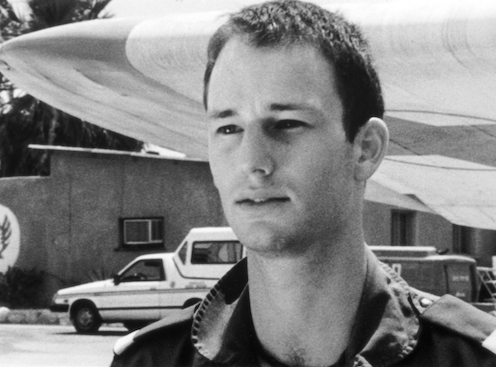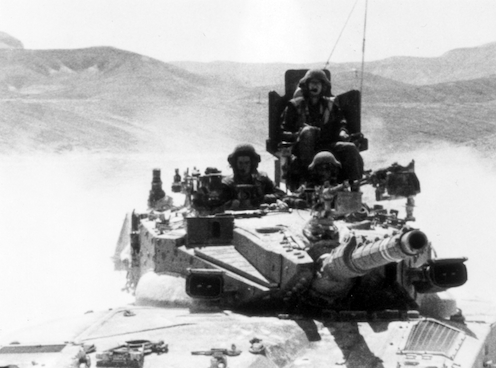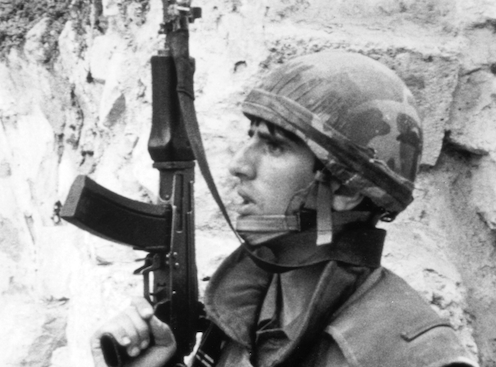Tsahal
Full Description
A journalist turned film director, Claude Lanzmann writes with a camera. TSAHAL is a probing inquiry into the Israeli army (in Hebrew, "Tsahal" is the acronym for Israeli Defense Forces, "Tsvah Haganah L'Yisrael.") Although Lanzmann is reluctant to label this new film a sequel to his film SHOAH (1985), it does complete a trilogy that began with WHY ISRAEL? (1973). Much of the film centers on the 1973 Yom Kippur War, positing that it marked a watershed in Israeli history, challenging the army's invincible self image. The deeply moving stories of ordinary men provide graphic insights into an Israeli sensibility profoundly marked by the legacy of the Holocaust. Women are conspicuously and regrettably almost absent. TSAHAL turns its attention to the present generation of soldiers who are obliged to serve in Gaza and the West Bank. The film gives voice to critics of the occupation such as the writers Amos Oz and David Grossman. It also addresses the question of torture. Lanzmann opens up his lens to an Israel of men and militarism but ironically leaves out the 1982 Lebanon War and the voices of Palestinians. TSAHAL crosses the desert, peers into planes and tanks, looks into settlements and border checkpoints, and tries to create a roadmap of Israeli identity. 1995 Venice, Toronto, and Berlin Film Festivals.
Filmmaker Bio(s)
Claude Lanzmann was born in Paris on November 27, 1925. He spent part of his wartime youth hiding in the mountains of central France and part of it in the French underground fighting with the partisans (maquis) for which he was decorated. His father was a French Resistance leader, and his bother was also a Resistance member. His mother, now in her early nineties, stayed in hiding in Paris, where she was arrested three times and escaped only "by a series of miracles."
Lanzmann has a degree in philosophy, and studied at the University of Berlin in 1948-49. In 1952 he met Jean-Paul Sartre and Simone de Beauvoir and began working at the journal they had founded, Les Temps Modernes, of which Lanzmann is today the director. In 1952, he also visited Israel for the first time and was deeply affected by the experience. His fascination and affinity with Israel grew during several successive visits.
Up to 1970 Lanzmann split his time between Les Temps Modernes and journalism, both print and television. In 1970, after having worked on the editing of several television projects, Lanzmann decided to become a documentary filmmaker. He prepared and shot his first film POURQUOI ISRAEL (WHY ISRAEL), a repsonse, in part, to his former anti-colonialist comrades who refused to understand how someone who agitated for Algeria's independence from France could also feverently support the survival of Israel. This work presents a real, non-Manichaean picture of Israel and achieved considerable critical and public success. POURQUOI ISRAEL? was considered, from its release in 1973, as one of the best films ever made on Israel. Its premiere was in the United States, at the New York Film Festival, only hours after the start of the Yom Kippur war.
Lanzmann began working on SHOAH during the summer of 1974; the film occupied him full time for 11 years. The film's release throughout the world in 1985 was greeted as a major event, both as history and as cinema. Since then, SHOAH's reputation has not stop growing. Thousands of articles, studies, books, and university seminars have been devoted to the film. SHOAH won the highest honors and was awarded prizes at numerous film festivals.
TSAHAL is the final part - after POURQUOI ISRAEL and SHOAH - of Lanzmann's trilogy on Jewish life and Jewish history.
Director(s)
Country(ies)
Language(s)
w/English Subtitle
Release Year
Festival Year(s)
Running Time
300




